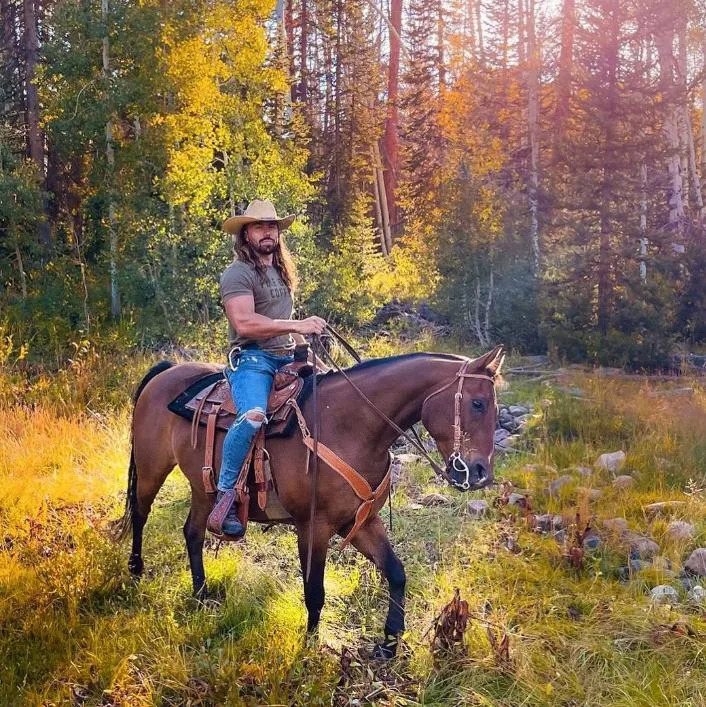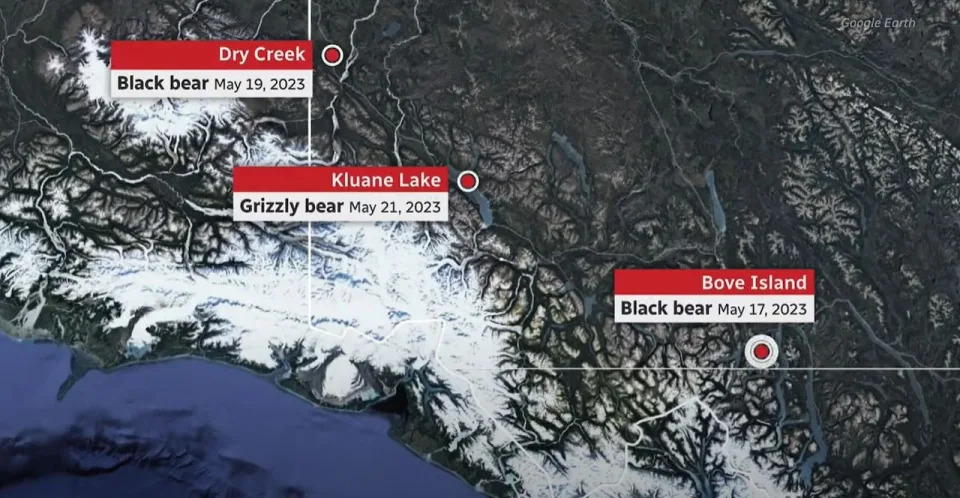CBC
Wed, November 22, 2023

Tristan James Hamm, 32, goes by
An outdoor social media influencer with millions of followers is accused of lying to obtain a Yukon hunting licence, going on a hunting spree and illegally killing several bears over a single week, according to court documents.
Tristan James Hamm, who goes by "Mr. Adventure" on Instagram, describes himself as an outdoor connoisseur, animal lover, adventure athlete and entrepreneur.
The 32-year-old has over two million followers on Instagram, with photos of him rock climbing, hiking, boxing and riding horseback, though his account became private Wednesday morning.
He's now facing 19 charges, including both territorial and federal offences, accused of killing two Yukon black bears and a grizzly.
Court documents allege Hamm provided false or misleading information to obtain a Yukon resident hunting licence.
He's charged with illegally killing a black bear on Bove Island, not far from Carcross, on May 17. Hamm is also accused of killing a black bear later that month on May 19 at Dry Creek in western Yukon. Then court documents say he killed a grizzly bear near Kluane Lake on May 21.

Hamm is accused of illegally killing a black bear on Bove Island on May 17, killing a black bear on May 19 at Dry Creek and then killing a grizzly bear near Kluane Lake, according to court documents. (CBC News)
Hamm is also facing charges related to exporting remains of two black bears and a grizzly outside the country this past summer.
All 19 of the charges have not been proven in court. Hamm is not in custody and the case will come before the Yukon territorial court in January.
In a message sent to CBC News on Wednesday, Hamm said he was "deeply saddened" by the charges against him but was advised by his legal team to not discuss specifics.
Hamm described himself as a strong advocate for ethical and responsible interaction with wildlife.
"I want to emphasize my unwavering commitment to responsible and respectful engagement with the natural world," he wrote.
"I appreciate the concerns raised and share the goal of promoting ethical wildlife practices. I am looking forward to this matter being resolved appropriately in court."
Potential fines, jail time
According to the Yukon government, a person convicted of an offence under the Wildlife Act can be fined up to $50,000 and sentenced to a year in jail. A conviction for an offence involving more than one animal can result in separate fines for each animal.
An Environment department spokesperson also said in an email to CBC News that there have been "very few" Wildlife Act offences over the years involving bears.
Still, the charges against Hamm have disturbed some Yukoners.
"We're kinda lost for words," said Bryce Bekar, president of the Yukon Fish and Game Association, when he heard about the charges against Hamm.
"We all understand how difficult it is to get a licence and become registered with the [Yukon) Department of Environment," he said, questioning how someone might be able to acquire a Yukon resident licence under false pretenses, such as the charge against Hamm.
Bekar said, regardless of the species, any time there's a court case about illegal hunting it tarnishes the image for all hunters.
"It just doesn't look good for all of us that are really trying to do the best we can and promote ethical and responsible harvesting," said Bekar.

Sue Greetham of Whitehorse is the president of the advocacy group Grizzly Bear Protection Yukon.
Sue Greetham of Whitehorse is the president of the advocacy group Grizzly Bear Protection Yukon. (Cheryl Kawaja/CBC)
Hearing about the charges, wildlife advocate Sue Greetham told CBC she's outraged.
"I just have a sinking feeling in my stomach, my heart just about breaks and I get goosebumps all over me. It's just the saddest thing," she said.
Greetham, the president of Grizzly Bear Protection Yukon — an advocacy group calling for more protection of bears, says she opposes trophy hunting and hopes for stronger regulation around legal hunting.
As for illegal hunting, Greetham says anyone found guilty should be made an example as a warning to others.
"I want it to be a significant message sent. I think the fines should be raised," she said. "I think there should be jail terms for such egregious criminal activity regarding wildlife. I just don't understand it."

No comments:
Post a Comment